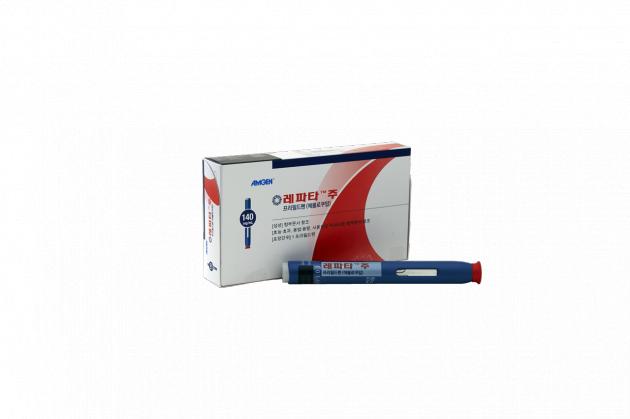Amgen Korea said it has presented the analysis of its high cholesterol (LDL-C) treatment Repatha's cardiovascular outcome study named FOURIER, at the American Heart Association Annual Scientific Sessions in Philadelphia, Penn.

The study evaluated the effectiveness of Repatha in patients who had suffered from myocardial infarction (MI).
In this analysis, the company compared 5,711 patients, who experienced an MI within one to 12 months, to 16,609 patients with a more distant event to assess the efficacy of Repatha on the primary endpoint, including cardiovascular (CV) death, MI, stroke, unstable angina or coronary revascularization, and the key secondary endpoint, such as CV death, MI or stroke.
The analysis showed that patients who experienced MI within one year were at higher risk of subsequent CV events compared to patients who had an MI over a year ago.
In the analysis, the risk reduction for experiencing a heart attack, stroke, or CV death in Repatha-treated patients treated within a year post-MI was 25 percent compared to 15 percent in those patients with a more distant MI.
"Nearly one in five patients will have a recurrent CV event during the first year after a heart attack which makes that year a critical time for high-risk patients," said Professor Robert Giugliano, a senior investigator at the TIMI Study Group at Brigham and Women's Hospital.
These results demonstrate the importance of intensive lipid-lowering therapy in the first year following a heart attack and provide additional evidence that Repatha significantly reduces CV risk and improves outcomes for high-risk patients, he added.
Amgen Chief Medical Officer Darryl Sleep also said, "Far too many patients remain at risk of another CV event because they are not managing one of the most important modifiable risk factors for a heart attack: high LDL-C."
These data demonstrate the critical role cardiologists play in closely monitoring and managing LDL-C in high-risk patients, and support recent professional guideline recommendations that call for a more intensive reduction of LDL-C to lower the risk of future CV events in high-risk patients, Sleep added.

